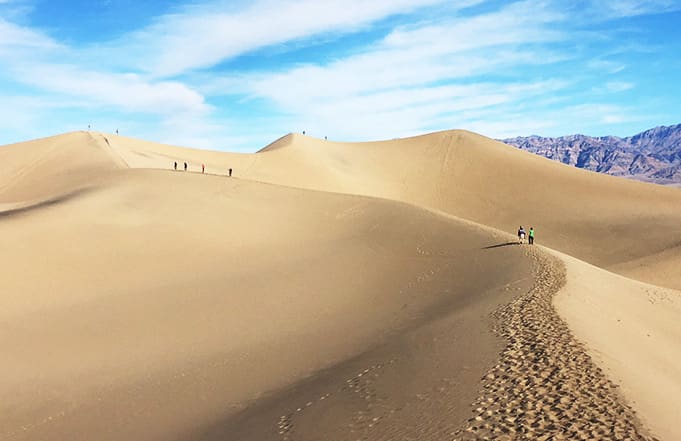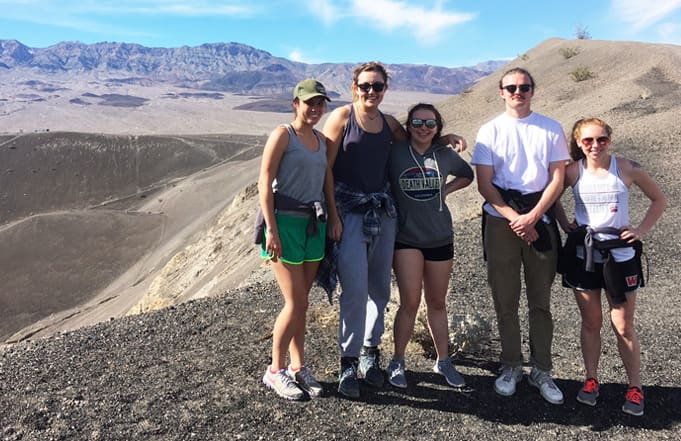March 10, 2017
University of Montana Western English professor Alan Weltzien recently took his literary regions class on a field trip to Death Valley National Park.

The Montana Western group hiked, camped and explored Death Valley National Park including visiting Badwater Basin, which at 282 feet below sea level is the lowest point in the Western Hemisphere. They observed nearby salt flats that make up a particularly fragile and unique environment.
Together Weltzien and retired Montana Western geology professor Shiela Roberts came up with the idea for a class.
The course focuses on geological and literary texts concentrating on the desert. Weltzien said, “It is a unique environment and has always attracted strange folks, mystics and visionaries.”
One of the texts the class studied included “Getting Over the Color Green: Contemporary Environmental Literature of the Southwest” edited by Scott Slovic. It’s a collection of fiction, non-fiction and poetry celebrating the region, Weltzien said. “Like the authors in this book, I am in awe of the desert.”
“We had remarkable weather and beautiful skies. I was overwhelmed by the extraordinary color palette and our lack of vocabulary for colors,” Weltzien said. “And as professor Roberts points out, in the desert, landforms are stripped bare. ‘Geology is naked.’”

Joanna Avery was one of 11 students who made the trip. “We experienced how the desert made us feel rather than just reading about it. Death Valley is a misnomer because life is everywhere,” she said.
“It was also interesting going from one of the brightest cities in the country (Las Vegas) to one of the darkest,” Avery said.
Death Valley is a “Gold Tier” Dark Sky Park. Distance from major cities and efforts from the National Park Service to minimize light pollution make this one of the best locations in the country for viewing the stars. Stargazer and storyteller Tom Satterly, also on the trip, helped the students interpret of the night skies.
Organizing the trip was not easy. Weltzien said. “It was a lot of extra work, a lot of logistics. But, the quality of experience for our students was more than worth it.”
With this interdisciplinary course, Weltzien said he has ignited the interest of his students in a field to which they previously had little exposure.
English major Jared Probert has a new appreciation for geology. “I now understand rocks. I never really got it before. Geology is not just about a rock. It’s a story of change and formation. Landscapes are a story,” Probert said.